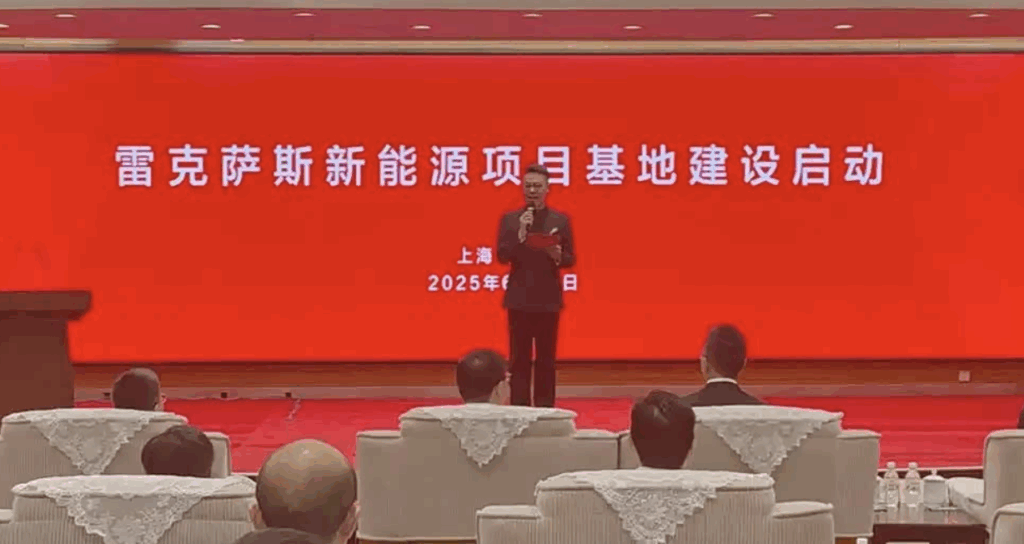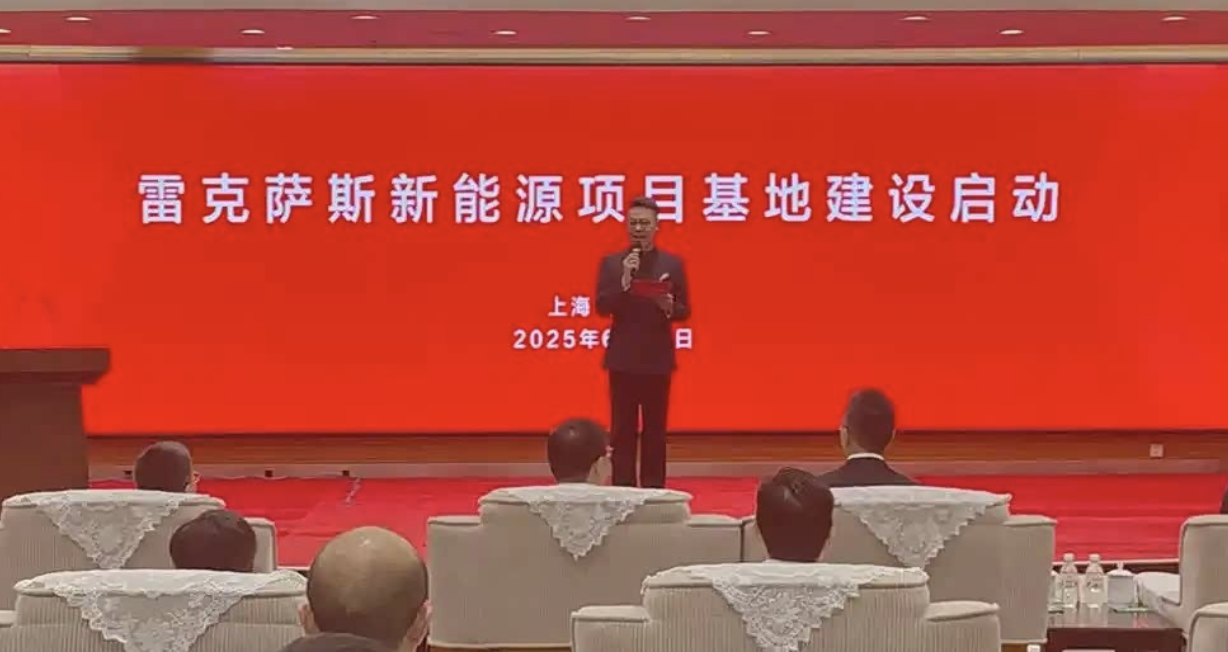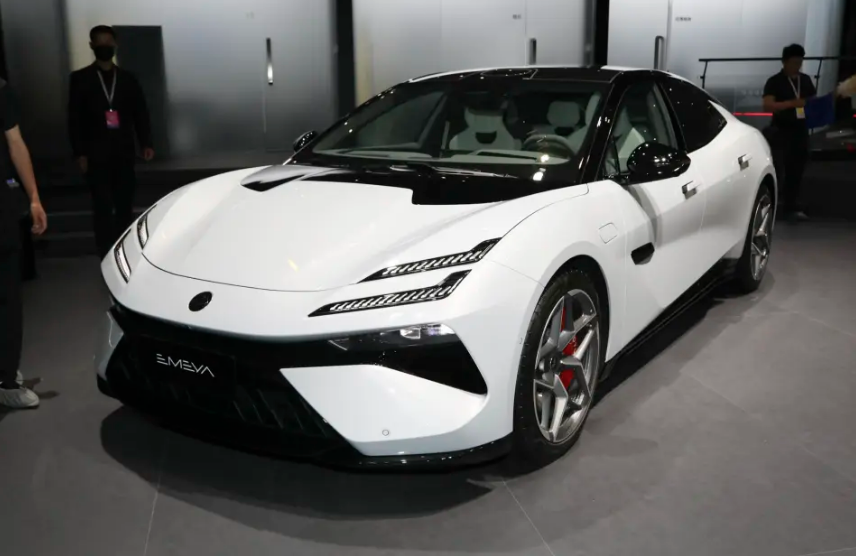On June 27, the groundbreaking ceremony for Lexus’ new energy project base was held in Jinshan District, Shanghai, marking the official start of construction for Lexus’ wholly-owned factory in Shanghai.

This is Lexus’ first localization of production in China and the first time a Japanese automobile brand has broken the traditional “joint venture” framework to directly set up a fully owned presence in the Chinese high-end electric vehicle market. According to reports, the first phase of the land allocated for the Lexus Shanghai Jinshan plant spans 1,692 acres, with a total investment of 14.6 billion RMB. Once completed, Lexus will produce new electric vehicles at this factory and enhance Toyota’s advanced power battery production capacity.
On February 5, Toyota China and Lexus officially announced plans to establish a R&D and production company for Lexus electric vehicles and batteries in Jinshan, Shanghai. Toyota China stated that it plans to set up a wholly owned company in Shanghai to produce electric vehicles and batteries. The new company will rely on Shanghai and the Yangtze River Delta region’s mature industry chain infrastructure, logistics network, talent system, and market scale to develop Lexus-branded electric vehicle models, with plans to start production by 2027.
On February 18, Lexus (Shanghai) New Energy Co., Ltd. was officially established, with Kato Takero as the legal representative and a registered capital of 107.1 billion JPY. It is wholly owned by Toyota Motor Corporation, with its registered address at 585 Guangye Road, Jinshan District, Shanghai. The company’s business scope includes automotive parts R&D, software development, mechanical equipment R&D, motor and control systems R&D, car sales, new energy vehicle sales, and auto parts wholesale.
On April 1, Lexus (Shanghai) New Energy Co., Ltd. acquired an industrial land parcel in Jinshan District, Shanghai, for 1.3534 billion RMB. This land, located in the JSS3-405 unit, covers approximately 1.1278 million square meters, with a 50-year lease term for industrial use. The land is designated for manufacturing new energy vehicles, lithium-ion batteries, and other types of batteries.
On April 22, the Shanghai municipal government and Toyota Motor Corporation officially signed a strategic cooperation agreement, while the Jinshan District government and Toyota China signed a cooperation memorandum. Additionally, the Jinshan New Jinshan Development Company and Lexus (Shanghai) New Energy Co., Ltd. signed an investment service agreement, marking the official establishment of Lexus’ electric vehicle and battery R&D and production company in Jinshan, Shanghai. It is reported that the Lexus Shanghai Jinshan plant is expected to be completed in August 2026 and start production in 2027, with an initial annual production capacity of 100,000 vehicles. The factory aims to achieve over 95% local component usage, and the produced models will not only serve the Chinese market but also be exported to Japan and other overseas markets. The plant’s startup phase is expected to create around 1,000 new jobs.
Lexus is currently one of the few luxury brands that have not yet localized production in China. Among the top luxury brands, Mercedes-Benz, BMW, Audi, and Volvo, Lincoln, Cadillac, Jaguar, Land Rover, Infiniti, and Acura from the second-tier luxury brands have all achieved local production, leaving only Lexus and Genesis to rely on imports for domestic sales. Despite not being locally produced, Lexus’ market share in China is still strong, remaining at the top of the second-tier luxury brands, demonstrating its powerful product strength.
Sales data shows that from January to May 2025, Lexus sold 73,900 units in the Chinese market, ranking first among second-tier luxury brands. Popular models include the Lexus ES and Lexus RX, while Volvo Asia Pacific ranks second with 47,900 units, and SAIC General Motors Cadillac comes in third with 40,300 units.
The move from imports to local production is a necessary response by Lexus to the intense competition in the Chinese market. The competition in the Chinese new energy vehicle market is fierce, with new energy vehicle startups and traditional luxury brands launching highly competitive products. Of course, how Lexus can regain its market image without the “import halo” will be a key issue it needs to address.
At the 2025 Shanghai Auto Show, the next-generation Lexus ES made its global debut. As a model upgrade, the next-generation Lexus ES will feature the latest electrification technology, with the introduction of a pure electric version and continued offerings of hybrid versions. The new model will also see improvements in cabin quietness and comfort.
In addition to Lexus, Genesis will also localize production. According to the latest statement from Zhu Jiang, CEO of Genesis China, the brand plans to introduce products that can compete with local leading brands within the next 3-5 years. Genesis aims to leverage the existing production and management capabilities within the group in China, focusing on cost control and supply chain management, to localize production and launch new energy vehicles that meet the demands of Chinese consumers in the next 3-5 years.



